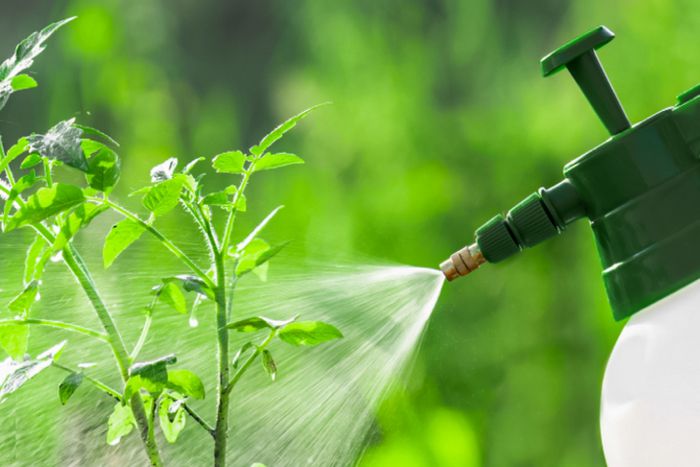With can you use toilet bowl cleaner to clean shower as the question, let’s dive into the potential benefits and dangers of using this powerful cleaner in your shower. This deep dive explores the potential hazards, effectiveness, and safer alternatives, equipping you with the knowledge to make an informed decision for a sparkling clean shower without compromising your health or your surfaces.
We’ll examine the harsh chemicals in toilet bowl cleaner and how they might react with different shower materials, like porcelain, acrylic, and fiberglass. We’ll also compare its effectiveness against specialized shower cleaners and explore safer, more effective alternatives. Finally, we’ll offer practical tips and a detailed look at safe cleaning procedures and potential scenarios to help you make the best choice for your shower.
Safety and Potential Hazards
Using toilet bowl cleaner to clean your shower is a risky proposition. While these cleaners might be effective at removing stubborn stains in a toilet bowl, their potent chemicals are not designed for use on shower surfaces. The consequences of improper use can range from superficial damage to serious health risks. It’s crucial to understand the dangers involved before attempting this potentially harmful practice.Toilet bowl cleaners are formulated with harsh chemicals, primarily acids and oxidizers, to dissolve mineral deposits and organic matter in the bowl.
These same chemicals can react aggressively with the various materials that make up your shower, leading to unpredictable and often irreversible damage. The nature of these reactions, and the associated health hazards, is something you should be aware of before considering this method.
Potential Damage to Shower Materials
Toilet bowl cleaner’s corrosive properties can cause significant damage to different shower materials. Porcelain, while durable, can be etched or pitted by the chemicals, leading to a loss of its smooth, glossy surface. Acrylic, a common shower material, can be softened or even dissolved by strong cleaners, resulting in warping, discoloration, or permanent damage. Glass surfaces, though resistant, can be susceptible to etching or clouding if exposed to these strong chemicals.
Chemical Reactions and Damage
The chemicals in toilet bowl cleaner can react with various shower materials in unpredictable ways. For instance, the acid in the cleaner can etch porcelain, causing pitting and discoloration. Acrylic, a polymer, is particularly vulnerable to degradation from the chemicals. The chemical reactions can lead to swelling, softening, or even dissolving of the acrylic material, potentially warping the shower enclosure or creating gaps and cracks.
Glass, while more resistant, can still suffer etching or clouding, particularly if exposed for extended periods.
Health Risks of Exposure
Exposure to the chemicals in toilet bowl cleaner can pose significant health risks. Inhalation of the fumes can irritate the respiratory system, leading to coughing, shortness of breath, and in severe cases, chemical pneumonia. Skin contact can cause burns and rashes, while ingestion can have even more severe consequences. Always handle these cleaners with extreme caution and proper ventilation.
Safety Precautions
When handling toilet bowl cleaner, safety should be paramount. Always work in a well-ventilated area, ideally outdoors or with a powerful exhaust fan. Never mix toilet bowl cleaner with other cleaning products, as this can create dangerous chemical reactions. Always wear appropriate personal protective equipment (PPE), such as gloves, eye protection, and a respirator, to prevent skin, eye, and respiratory exposure.
Comparison of Potential Damage
| Material | Potential Damage from Toilet Bowl Cleaner |
|---|---|
| Porcelain | Etching, pitting, discoloration, loss of shine |
| Acrylic | Softening, warping, discoloration, possible dissolution, damage to structural integrity |
| Fiberglass | Potential for etching or discoloration, particularly with prolonged exposure |
Effectiveness and Suitability
Using toilet bowl cleaner in the shower might seem tempting due to its cleaning power, but it’s crucial to understand its limitations and potential risks. Toilet bowl cleaner formulations are designed for a specific environment and may not be suitable for the delicate surfaces of a shower. A tailored approach, using specialized shower cleaners, is often more effective and safer.Shower surfaces are frequently exposed to moisture, soap residue, hard water minerals, and mildew, requiring cleaning solutions with specific capabilities.
Understanding the ingredients and intended use of cleaning products is paramount to achieving a thorough and safe clean. This section delves into the effectiveness and suitability of toilet bowl cleaner versus dedicated shower cleaners, exploring the composition of each and their potential impact on shower surfaces.
Comparison of Cleaning Agents
Toilet bowl cleaner typically contains strong acids or alkalis, such as hydrochloric acid or sodium hydroxide, specifically designed to dissolve mineral deposits and organic matter in toilets. These powerful agents are not ideal for shower surfaces, which can be damaged by their harshness. Shower surfaces, especially those made of acrylic, fiberglass, or porcelain, can be susceptible to etching or discoloration if exposed to these strong chemicals.
Specialized shower cleaners, on the other hand, often utilize milder agents, like surfactants and chelating agents, which are more effective at removing soap scum, hard water stains, and mildew without harming the shower’s surface.
Effectiveness on Different Grime Types
Toilet bowl cleaner may offer some effectiveness against hard water stains and soap scum, but its aggressive nature can cause damage to the shower surface over time. For optimal results and to avoid potential damage, it’s best to use cleaners specifically designed for showers. These specialized cleaners often contain ingredients formulated to tackle different types of grime, offering a more targeted and safer approach.
Cleaning Solutions for Showers
A variety of cleaning solutions are specifically designed for shower cleaning, catering to different needs and preferences. A selection of suitable options includes:
- Commercial Shower Cleaners: These cleaners are formulated with ingredients designed to remove soap scum, hard water stains, and mildew without harming shower surfaces. Look for cleaners with mild ingredients and instructions that are specific to the material of your shower.
- Baking Soda and Vinegar: A natural and often effective cleaning solution, baking soda and vinegar can help remove soap scum and hard water stains. The combination of these ingredients creates a gentle cleaning action without harsh chemicals.
- White Vinegar: Vinegar is a common household cleaner that effectively tackles soap scum and hard water deposits. Its acidity gently dissolves mineral buildup and leaves behind a fresh scent.
Comparison Table
| Cleaning Agent | Effectiveness on Hard Water Stains | Effectiveness on Soap Scum | Effectiveness on Mildew | Suitability for Shower Surfaces |
|---|---|---|---|---|
| Toilet Bowl Cleaner | Potentially effective, but potentially harmful to surfaces | Potentially effective, but potentially harmful to surfaces | Potentially effective, but potentially harmful to surfaces | Generally unsuitable due to harsh chemicals |
| Specialized Shower Cleaner | Highly effective | Highly effective | Highly effective | Generally suitable |
“Always follow product instructions and safety precautions when using any cleaning solution.”
Cleaning Procedures and Methods
Using toilet bowl cleaner for shower cleaning is a risky proposition, best avoided. While some cleaners might seem strong enough to tackle tough grime, the harsh chemicals can damage shower surfaces and potentially harm your skin and health. It’s crucial to weigh the risks against the potential benefits before attempting this method. Instead of potentially harmful shortcuts, consider more effective and safer approaches for shower cleaning.Even if you choose to use a toilet bowl cleaner for cleaning, dilution is not a guarantee of safety.
So, can you use toilet bowl cleaner to clean your shower? Probably not! While you might be tempted to reach for that potent cleaner, it’s best to avoid it. Instead, focus on the right way to wash your jeans, like following the instructions on the care label and using a gentle cycle. Knowing the right way to wash jeans is just as important as avoiding harsh chemicals for your shower.
Ultimately, stick to specialized shower cleaners for a safe and effective clean.
Always prioritize safety and understand the risks involved before proceeding with this method. The effectiveness of any cleaning agent depends on the specific product and the nature of the grime. Different types of stains may require different approaches.
Safe Shower Cleaning Procedures
A safe and effective shower cleaning routine should prioritize the health and well-being of the user and the longevity of the shower’s surfaces. Proper cleaning methods are essential to avoid damage and ensure a sanitary environment. Harsh chemicals can compromise the integrity of materials, leading to premature wear and tear.
So, can you use toilet bowl cleaner to clean your shower? Probably not the best idea! While a strong cleaner might seem like a quick fix, it’s often too harsh for delicate surfaces. Instead of resorting to potentially damaging chemicals, consider tackling the clutter in your life – and maybe even discover the best decluttering trick based on your zodiac sign here.
A well-organized space will make cleaning much easier, and you’ll avoid the need for harsh chemicals altogether. A little less clutter, a lot less scrubbing – it’s a win-win!
- Pre-cleaning inspection: Before starting, carefully examine the shower to identify the types of stains and the materials used in its construction. This step allows you to choose the most suitable cleaning agents and methods, minimizing potential damage.
- Gather your supplies: Gather appropriate cleaning tools, such as soft-bristled brushes, sponges, and cloths, to avoid scratching surfaces. Use a non-abrasive cleaner, and consider a specialized cleaner designed for shower surfaces. Also, have plenty of water on hand for rinsing.
- Cleaning the shower walls: Apply the chosen cleaning solution to the shower walls and allow it to sit for a few minutes to loosen the dirt and grime. Gently scrub the affected areas with a soft brush, avoiding harsh scrubbing that can scratch the surfaces. Ensure thorough rinsing to remove all traces of the cleaning solution.
- Cleaning the shower floor: Clean the shower floor using a similar method, applying the cleaning solution and scrubbing gently with a suitable cleaning tool. Rinse thoroughly to remove all cleaning residue.
- Cleaning the showerhead: Disassemble the showerhead and soak it in a cleaning solution for a few minutes to loosen any mineral buildup. Scrub gently with a soft brush, then rinse thoroughly and reassemble. Consider using a specialized showerhead cleaner for optimal results.
- Drying and maintenance: Dry the shower thoroughly to prevent water spots. Regular maintenance, such as cleaning the shower weekly or bi-weekly, can help prevent the buildup of grime and stains. This prevents the need for harsh cleaning methods.
Alternative Cleaning Methods
Many safer and more effective cleaning methods are available for shower cleaning. These approaches are gentler on surfaces and less likely to cause damage.
- Baking soda and vinegar solution: A paste made from baking soda and vinegar can effectively remove tough stains and mineral deposits. Apply the paste to the affected areas and let it sit for a while. Scrub gently and rinse thoroughly.
- White vinegar: White vinegar is a powerful cleaning agent that can dissolve hard water stains and grime. Spray the vinegar on the shower walls and allow it to sit for a few minutes before scrubbing with a soft brush and rinsing. This method is gentler on surfaces than harsher chemicals.
- Commercial shower cleaners: Specialized shower cleaners are formulated for shower surfaces, effectively removing various types of stains and grime. Follow the manufacturer’s instructions for safe application and usage.
Application Techniques for Toilet Bowl Cleaner (if applicable)
Avoid using toilet bowl cleaner on shower surfaces unless explicitly recommended by the manufacturer for that specific shower surface. The use of toilet bowl cleaner on showers is generally discouraged due to the risk of damage and potential harm.
Safe Shower Cleaning Procedure Table (if using toilet bowl cleaner, NOT RECOMMENDED)
Note: The following table is for illustrative purposes only and should not be used with toilet bowl cleaner unless explicitly recommended by the manufacturer for the specific shower surface. This method is highly discouraged due to potential risks.
| Step | Action |
|---|---|
| 1 | Prepare the cleaning area. |
| 2 | Dilute the toilet bowl cleaner according to the manufacturer’s instructions. |
| 3 | Apply the diluted solution to the affected areas. |
| 4 | Allow the solution to sit for a few minutes. |
| 5 | Gently scrub the surfaces with a soft brush. |
| 6 | Rinse thoroughly with water. |
| 7 | Dry the shower surfaces. |
Alternatives and Recommendations
Beyond the occasional toilet bowl cleaner foray into shower cleaning, a more comprehensive approach is crucial. This involves exploring safer, more effective, and environmentally friendly alternatives tailored to different types of shower grime. Understanding the best approach for each situation will save your shower from damage and keep it sparkling.A variety of cleaning solutions and methods are available, each with unique strengths and weaknesses.
Choosing the right one for your specific shower situation is key to maintaining its cleanliness and longevity. Selecting appropriate products and methods will prevent potential damage and ensure a thorough clean without harming the shower’s surface or your health.
Alternative Cleaning Products
Different cleaning products cater to various types of shower grime. Vinegar, baking soda, and lemon juice are excellent natural options that effectively remove soap scum and hard water stains. These ingredients are often safer for use around the house and for the environment. For more stubborn stains, a specialized shower cleaner containing mild acids or surfactants can be used, but be sure to check the product label for specific instructions.
Eco-Friendly Shower Cleaning Products
Environmentally conscious consumers are increasingly seeking eco-friendly cleaning solutions. Many commercial products are now formulated with natural ingredients, minimizing their impact on the environment. These products often include plant-based surfactants, biodegradable ingredients, and are free of harsh chemicals. Look for products labeled as biodegradable, plant-derived, or free of phosphates and chlorine. A quick online search for “eco-friendly shower cleaners” will provide a range of options.
Specialized Shower Cleaners
Specialized cleaners cater to different types of shower grime. For soap scum, a product formulated with surfactants is effective. For hard water stains, a cleaner with a mild acid component is better. For mold and mildew, a product with antifungal properties is necessary. Always follow the product instructions carefully to avoid damaging the shower surface.
Specialized cleaners are typically more effective than general-purpose cleaners, as they’re designed to target specific types of grime.
Long-Term Effects of Harsh Cleaning Agents
Using harsh cleaning agents regularly can damage shower surfaces over time. Strong chemicals can erode the protective coating, leading to discoloration, pitting, or even structural damage. This is particularly true for acrylic and fiberglass showers. Over time, constant exposure to harsh chemicals can weaken the surface’s integrity.
Comparison Table of Shower Cleaning Solutions
| Cleaning Solution | Grime Type | Suitability | Environmental Impact |
|---|---|---|---|
| White Vinegar | Soap scum, hard water stains | High | Low |
| Baking Soda | Soap scum, light stains | High | Low |
| Lemon Juice | Soap scum, light stains | High | Low |
| Commercial Shower Cleaner (mild) | Soap scum, hard water stains, mildew | High | Medium |
| Commercial Shower Cleaner (strong) | Stubborn stains, mildew, mold | High (with caution) | High |
This table provides a basic comparison of common shower cleaning solutions and their suitability for different grime types. Always check product labels and safety data sheets before use. Consider the specific type of shower material and the severity of the grime when selecting a cleaning solution.
Specific Shower Materials and Cleaners: Can You Use Toilet Bowl Cleaner To Clean Shower
Toilet bowl cleaner, despite its effectiveness in removing tough stains from porcelain, isn’t a universal solution for all shower surfaces. The varying compositions of shower materials – porcelain, acrylic, and fiberglass – significantly impact how cleaning agents interact with the surface. Understanding these differences is crucial to avoid damaging your shower and achieving a sparkling clean.Different shower materials react differently to cleaning agents.
Porcelain, known for its hard, non-porous surface, can withstand more aggressive cleaners. Acrylic, a softer, often porous material, is more susceptible to damage from harsh chemicals. Fiberglass, a composite material, presents a middle ground, needing careful consideration when selecting cleaning products. The active ingredients in toilet bowl cleaner, like strong acids or oxidizers, can etch or degrade softer surfaces if used inappropriately.
Porcelain Shower Materials
Porcelain showers, often featuring a smooth, hard surface, can tolerate some aggressive cleaning solutions. However, the strong acids or oxidizers present in toilet bowl cleaner can still pose a risk if left on the surface for extended periods. The risk is mitigated if the cleaner is quickly rinsed away.
Acrylic Shower Materials
Acrylic showers, commonly used for their affordability and design flexibility, are more delicate than porcelain. The porous nature of acrylic means that cleaners can penetrate the surface, potentially causing damage or etching. Toilet bowl cleaner’s aggressive chemicals are strongly discouraged for use on acrylic.
While it might seem tempting to reach for that trusty toilet bowl cleaner for a quick shower scrub, it’s definitely not a good idea. Using harsh chemicals like those in toilet bowl cleaners can damage your shower’s finish and even create a dangerous situation. This is just one of the many things that can make your bathroom feel cramped and visually smaller.
Check out our guide on things making your bathroom look small to learn how to make the most of your space and avoid these kinds of pitfalls. Ultimately, sticking to specialized shower cleaners is the safest and most effective way to keep your bathroom sparkling.
Fiberglass Shower Materials
Fiberglass showers, a composite material, are a middle ground between porcelain and acrylic. While fiberglass is relatively resistant to scratching, the harsh chemicals in toilet bowl cleaner can still lead to surface damage if left on the surface for prolonged periods. A more gentle approach is always recommended.
Recommended Cleaners for Different Shower Materials
- For porcelain, consider a mild, all-purpose cleaner or a specialized porcelain cleaner. These products are specifically formulated to maintain the surface’s integrity without causing harm.
- For acrylic, opt for cleaners specifically designed for acrylic surfaces. These are often formulated with gentler chemicals to avoid etching or scratching.
- For fiberglass, mild, non-abrasive cleaners are ideal. Avoid anything containing harsh acids or abrasives.
Potential Risks of Using Toilet Bowl Cleaner on Non-Porous Surfaces
While porcelain is relatively resistant to etching, prolonged exposure to toilet bowl cleaner can still cause damage. The chemicals in the cleaner can dull or discolor the surface, especially if not rinsed promptly. This is particularly true for surfaces that have been previously damaged or have microscopic imperfections.
Table of Shower Materials, Suitable Cleaning Solutions, and Potential Risks
| Shower Material | Suitable Cleaning Solutions | Potential Risks of Using Toilet Bowl Cleaner |
|---|---|---|
| Porcelain | Mild all-purpose cleaners, specialized porcelain cleaners | Surface discoloration or dulling with prolonged exposure; risk mitigated with quick rinsing. |
| Acrylic | Acrylic-specific cleaners, mild dish soap | Etching, surface damage, and potential discoloration; strongly discouraged. |
| Fiberglass | Mild, non-abrasive cleaners | Surface damage from prolonged exposure to harsh chemicals; risk mitigated with quick rinsing. |
Illustrative Examples and Scenarios
Using harsh chemicals like toilet bowl cleaner on a shower, while sometimes tempting in a desperate cleaning situation, is generally not recommended. Understanding when it’s appropriate and when it’s not, as well as the potential damage, is crucial for maintaining your shower’s longevity and your safety. Let’s delve into specific scenarios.
A Potentially Necessary Scenario
A stubborn, deeply ingrained mineral deposit or a particularly persistent mold stain might necessitate a more aggressive approach. Imagine a showerhead encrusted with hard water deposits that regular cleaning methods haven’t dislodged. If other less harsh cleaning agents prove ineffective, then cautiously using a toilet bowl cleaner might be a last resort. However, even in this situation, extreme caution and careful consideration are vital.
It’s not a guaranteed solution, but a potential one, with significant risk if used improperly.
A Situation Where Toilet Bowl Cleaner is Not Recommended
A common scenario where toilet bowl cleaner is absolutely not recommended involves everyday shower cleaning. Routine cleaning with mild, shower-specific cleaners is usually sufficient and avoids the potential damage caused by harsh chemicals. Using toilet bowl cleaner on a shower with a delicate finish, like enamel or porcelain, is extremely risky, as the harsh chemicals can easily cause etching or discoloration.
Potential Damage from Incorrect Use, Can you use toilet bowl cleaner to clean shower
Using toilet bowl cleaner incorrectly on a shower can lead to several issues. The highly acidic nature of these cleaners can severely damage the shower’s surface, leading to etching, pitting, or even complete breakdown of the material. The fumes from the cleaner can also cause respiratory irritation and eye damage if not used in a well-ventilated area. Furthermore, the residue left behind can attract further grime and buildup, negating any perceived cleaning benefits and potentially harming the shower even more in the long run.
It’s essential to prioritize safe and effective cleaning methods that avoid unnecessary risks.
A Possible Option for Toilet Bowl Cleaner Use
A possible scenario where a toilet bowl cleaner could be a viable, though extremely cautious, option is in the removal of a stubborn, deeply embedded, and persistent mineral deposit on a shower surface, especially if other cleaning methods have failed. However, it’s crucial to follow the instructions on the product label very carefully and only use it in a well-ventilated area.
Protecting yourself with appropriate safety gear is absolutely necessary. This approach should be a last resort, and should be evaluated thoroughly before use.
Demonstrating Alternative Cleaning
For a similar situation, involving a showerhead encrusted with hard water deposits, a more suitable and safer alternative is using a mixture of white vinegar and water. This approach is both environmentally friendly and significantly less harmful to the shower’s finish.
- Prepare the Solution: Mix equal parts white vinegar and warm water in a spray bottle. This solution will help loosen the mineral deposits.
- Apply the Solution: Spray the affected area of the showerhead liberally with the vinegar solution.
- Soak and Agitate: Let the solution sit for at least 15 minutes, allowing the vinegar to soften the deposits. Gently scrub the showerhead with a soft brush or sponge to remove loosened debris. Avoid harsh scrubbing that could damage the surface.
- Rinse Thoroughly: Rinse the showerhead with clean water to remove all traces of the vinegar solution.
- Dry the Surface: Allow the showerhead to air dry completely to prevent water spots.
This method is generally more effective, less damaging, and less hazardous than using toilet bowl cleaner. It effectively tackles mineral buildup without the risks associated with harsh chemicals.
Wrap-Up
Ultimately, using toilet bowl cleaner on your shower isn’t generally recommended due to the potential damage to materials and health risks. While it might seem like a quick fix, specialized shower cleaners are designed to effectively remove grime without posing these hazards. This guide highlights the importance of choosing the right tools for the job and protecting your shower’s longevity and your well-being.
We’ve covered the pros and cons, and provided safe alternatives, so you can make an informed choice for a sparkling clean shower.





